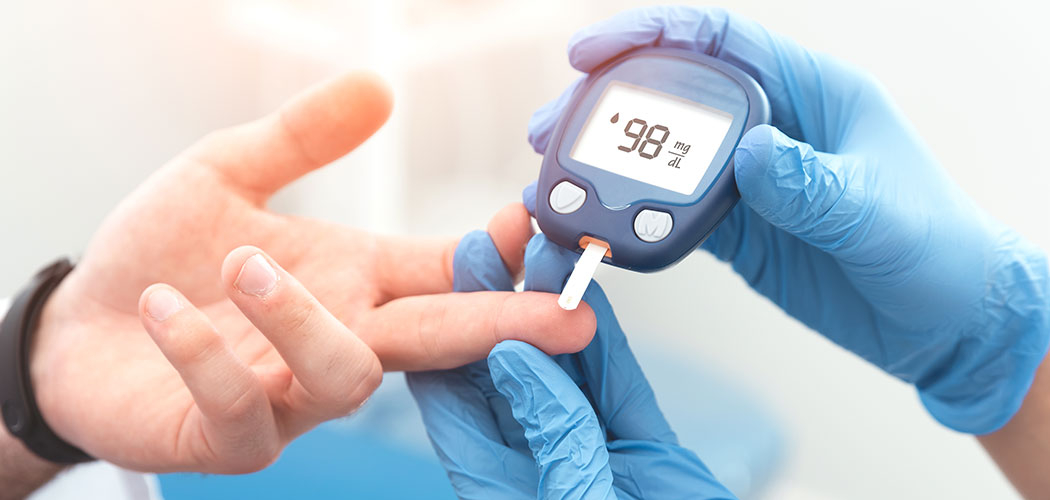Angry behaviors and aggressive behavior associated with diabetes are real. A diabetic's life can be challenging. It is common to feel frustrated and irritable. It is normal to feel these emotions when dealing with a serious and difficult disease like diabetes. Diabetic rage, however, is one of diabetes' darker sides. The situation is frightening and dangerous. The following articles provide an overview of diabetic rage and aggressive behavior that can help you understand what’s going on and how to deal with it.
Diabetic rage and Why does it happen?
Psychological and physiological factors play a significant role in diabetic rage and aggression. Psychologically, diabetic rage is a result of the stress associated with the disease. There can be a great deal of anxiety and fear associated with health and lifestyle limitations. The overwhelming nature of diabetes treatment and management can result in emotions ranging from annoyance to frustration. Sometimes controlling diabetes can be very overpowering and can negatively impact the mental and emotional health of the patient.
There is growing evidence that mood may be influenced by blood sugar levels. It is possible for a person to experience a variety of symptoms, including changes in mood, when their blood sugar fluctuates, whether they are high or low.
The symptoms of low or high blood sugar level:
- Confusion
- Nervousness or anxiety
- Hunger
- Difficulties with coordination, concentration, and decision making
- Aggression, irritability, and impatience
- Personality and behavioral changes
- Sweating
- Feeling tired
- Dizziness
- Tingling lips
- Feeling shaky or trembling
- Fast palpitations
- Becoming easily irritated, tearful, anxious, or moody
- Turning fade in color
- Feeling unwell
- Feeling tired or having low energy
- High levels of glucose in the urine
- Frequent urination
- Increased thirst
A poorly controlled diabetes can contribute to mood swings and unpredictable or even aggressive behaviors due to fluctuating blood glucose levels. In some cases, diabetes rage involves behaviors you are not consciously aware of, which can be dangerous. When the blood sugar level of a patient drops, or spikes then it definitely affects the mood which can produce a strong sense of anger or sometimes depression. Which can make you feel that you are out of your control zone. In serious cases, either extreme hypoglycemia or hyperglycemia can lead to cognitive impairment, confusion, loss of self-control, and depression. These conditions should be considered a medical emergency.
Shift from anger to abuse
It's normal for people to get angry sometimes. However, it may not be normal for someone with diabetes to erupt into anger and take it out on others. If you are constantly getting angry at your partner or family members, this can become abusive behavior.
If anger is expressed violently against loved ones, such as hitting or slapping, then it becomes domestic abuse. Domestic abuse can also be threatened or intimidating. It can also be belittling you or making you feel scared.
How to Manage Your Diabetes and Anger
- Paying attention to your feelings can help you know when you need more help coping with your condition.
- It is important to take good care of yourself. Eating right, taking medication, and keeping track of your blood sugar can help you control your blood sugar. Hormones that regulate blood sugar also regulate stress levels. When your blood sugar is off, you can become enraged or depressed. Keeping track of blood glucose levels will help you identify when anger affects you.
- If you feel angry or stressed, exercise, meditation and yoga can help. Walk or write in a journal for ten minutes or breathe deeply for a minute or two. Talking to a therapist about your feelings may also be helpful.
- You should consider a continuous glucose monitor. Monitoring blood sugar and preventing severe fluctuations can be easier with newer technologies. Continual monitoring may be the safest option for you or someone you love who suffers from mood swings.
Managing diabetes-related mood swings is made easier by controlling blood sugar levels. Take your medicine, eat consistently, and keep emergency snacks handy. In the event of an emergency, you should monitor your glucose levels and seek medical attention immediately. Treatment for diabetic rage involves treating aggressive behavior immediately and developing long-term management techniques to prevent future episodes. As diabetes rages are caused by incorrect glucose levels, it's important to get your blood sugar back to a healthy level (in the range of 70 mg/dL and 140 mg/dL). When you treat your blood glucose levels, you will get back to normal functioning and will be able to decrease your hostile feelings and aggressive behavior.
You can get your diabetes test at Diagnear, we provide health checkup test services at your doorsteps. At Diagnear we have highly skilled experts and the latest technology machines to give you the most accurate results in test reports. For more information, you can visit our website: www.diagnear.com



 Login/Sign Up
Login/Sign Up





